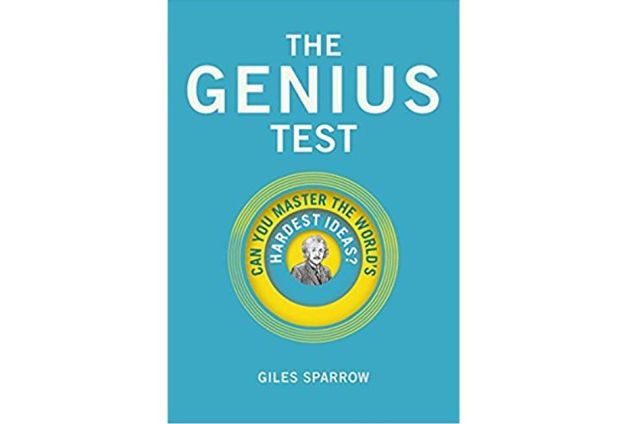
A crash course in fundamentals of true knowledge (Book Review)
Title: The Genius Test: Can You Master the World’s Hardest Ideas?; Author: Giles Sparrow; Publisher: Quercus; Pages: 224; Price: Rs 599
The biggest fallacy in our high-tech world is believing that the stunning advances in knowledge — now accessible anytime and everywhere through flashy devices — have left everyone, especially the millennials, well-learned. But could any one of them, just asked, explain the “hard problem” of consciousness, the essence of post-modernism, or how quantum theory relates to the everyday world.
Or from other fields, could they weigh in, without a fast consultation on the internet, on the difference and the purpose of structuralism and semiotics, the potential of nanotechnology or the basic difference between left, right and central political theories?
While most of these issues, spanning pure science to philosophy to politics, and from culture to economy to technology may seem rather academic and only required for those appearing for a civil service examination, these are all subjects on which we may need detailed, valid opinions in an increasingly complex world. For these are matters that cannot be left to the experts.
Acquiring a basic grounding in them may seem a tall order, especially for a generation used to shortcuts, just the bare essential knowledge and a higher predilection for gossip. But this book might be of help.
And then this knowledge may be make you sought-out — probably, argues author Giles Sparrow.
“We’ve all had that experience — nodding along wisely to a conversation about a topic we barely understand, when someone asks for our opinion, and the floor abruptly drops away from under us. Usually, our instinct is to mutter something non-committal or agree with whoever seems to be the smartest person in the group. But what if we could be that person?” he asks.
Towards this goal, Sparrow, who has a two-decade career in publishing that has seen him write books on subjects spanning spaceflight, archaeology and mythology, and editing bestsellers by top authors on fields ranging from quantum physics to economics to evolution, makes use of his experience to help create spread knowledge.
This, he aims to achieve by presenting the basic essentials of a huge range of topics across the fields of life itself — from the debate about its origins and development to particularly human traits of consciousness and language, philosophy, the mind, the arts, politics and economics, mathematics, physics and finally cosmology.
While the issues he covers begin from the “tricky”, say the nurture vs nature problem, the history of literature, the contemporary vexed matter of digital politics, they rise up to the “tough” ones — genetic engineering, nature of reality, and concept of infinity, and then to the “formidable”, encompassing good and evil, post-capitalism, black holes and multiverses and the like.
Finally, there are the seven “mind-blowing” issues, that can change how we look at “certainties” — ranging from free will and God to Fermat’s Last Theorem and the Theories of Everything.
But in all the issues Sparrow covers, arranged thematically, the treatment is similar. Each entry has a relevant quote, a basic outline of the issue, five “true or false” questions to gauge your understanding of the topic, before “10 Things a Genius Knows”, offering a comprehensive but lucid overview of the topic, including both its central ideas and historical development.
But that is not all. You also get a smattering of opinions, facts and interesting titbits to show your knowledge is not just based on reading the encyclopaedia, and for all those wanting only the bare-bones essential, a concise but incisive summary not exceeding two sentences.
This is not merely intended as a crib sheet for those who belatedly have come to the realisation that they should know something about the great issues of the day. Sparrow stresses that it won’t make you a bona fide genius (though a “better bluffer at parties”), but may “even change the way you look at the world and reveal a previously undiscovered intellectual ability or interest”.
And in that way, may lie not only your salvation, but of the world. So stop looking at, tapping, scrolling your smartphone and read this.
(Vikas Datta can be contacted at vikas.d@ians.in)
—IANS
